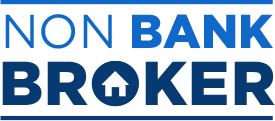Many of the main banks lending criteria has been tightening, and this has meant many customers are unable to meet bank requirements for a traditional mortgage top up.
As a result, mortgage advisers are now looking for alternative funding options to release equity from their client’s residential or commercial properties – and a caveat or second mortgage could be the answer.
What Is A Caveat or A Second Mortgage?
People often think that loans secured by caveats are “bad” but that is not the case.
Loans secured by caveats are often the most affordable option as the caveats are easy and quite cheap to get put in place.
But the concept of a caveat loan has historically had negative connotations.
In Latin the word ‘caveat’ means ‘let the person beware’. The purpose of a caveat is to warn all persons that someone (in the case of a loan this means the lender) claims an interest in the land which is the security. It is simply a warning that protects the lender and requires the owner to seek the caveator’s consent before selling the property.
Should a caveat-secured lender have to proceed to a Property Law Act notice (PLA), they will need to upgrade their caveat to a second mortgage and this can mean taking over the first mortgage too.
The Benefits Of Caveat Loans & Second Mortgages
What are the benefits of a caveat or second mortgage and when are they used?
If you want a top-up on your existing mortgage, but because you now don’t meet the bank’s lending criteria or your credit profile has deteriorated, then you may find that the bank decline or limit the borrowing which may be offered.
If this is the case then you could refinance your mortgage with a new lender.
That may be a good option, but it can be costly, with legal fees, break costs, valuations fees, establishment fees and perhaps most significantly it could mean that you need to refinance with a non bank lender which can mean less competitive interest rates.
Loans secured by caveats or second mortgages offer a great alternative.
This way you can keep your existing lending with the bank, and just the extra is done as a loan secured by a caveat or a second mortgage.
The funds from a caveat or second mortgage are typically used for;
- debt consolidation
- funding the shortfall in the deposit when buying your first home
- financing tax debt over a more appropriate loan term
- funding part of a build or a renovation
- funding for a business
Caveats and second mortgages are just types of security, rather than a loan product.
Once an adviser understand your personal circumstances they can help you decide if a caveat or second mortgage could be the answer.
The key is always the exit strategy.
You want to know that you can look to refinance the caveat or second mortgage loan back to a main bank or long-term lender.
It is therefore important to deal with a specialist broker that fully understand and can compare the options to ensure that they suit your needs You want to know that you are offered the most appropriate and cost-effective solution that works for you.
Get Good Advise First
 Will Loans Secured By Caveats and Second Mortgages Suit You?
Will Loans Secured By Caveats and Second Mortgages Suit You?
In short, caveat or second mortgage secured loans can be used to release equity in a property without the need for a refinance of the first mortgage. This maintains the client’s existing main bank relationship and competitive interest rates for the majority of their lending, but still provides an immediate solution to their pressing financial needs.
Caveat and second mortgage secured loans:
- Provide an alternative for when a mortgage top-up is not possible.
- Allow the borrower to retain their existing mortgage and interest rate.
- Are often a quick, cost-effective way to meet pressing financial needs.
